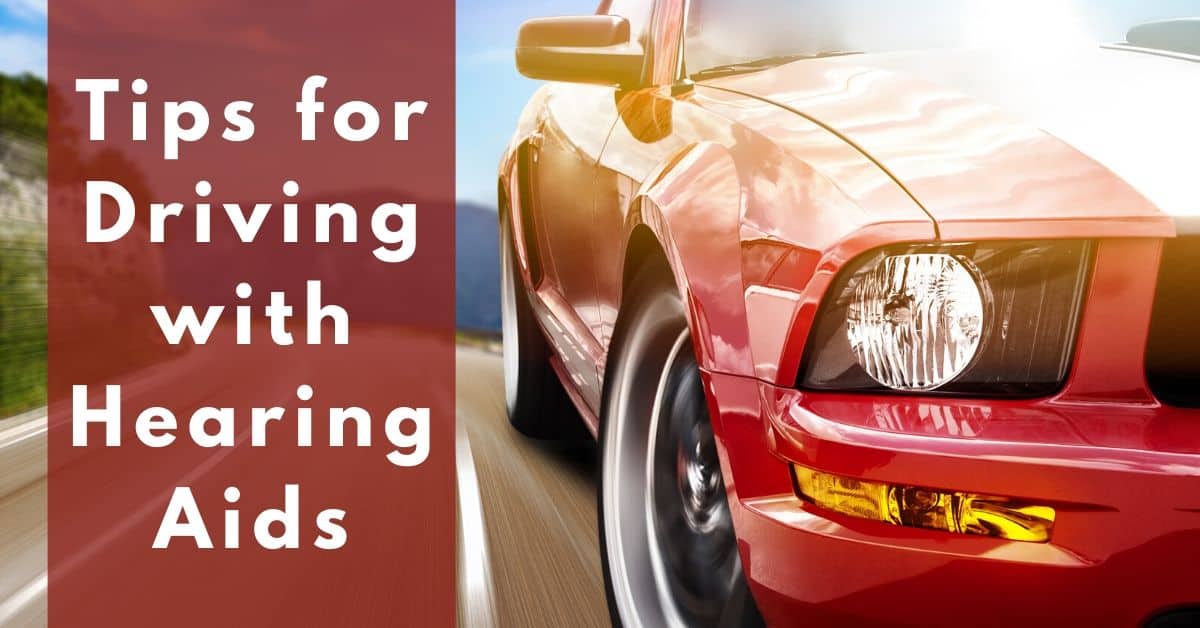- The Connection Between Hearing Loss and Dementia - July 30, 2024
- The Advantages of Rechargeable Hearing Aids - July 16, 2024
- How to Enjoy Music Festivals While Protecting Your Hearing - July 3, 2024
Road safety is about more than just reading traffic signs or following the rules of the roads. It’s also essential to be aware of your limitations, and you need to realize that your reaction times have slowed, or that you don’t see or hear as clearly as you used to.
Staying safe while driving as you age means that you will have to modify your habits while driving, and these driving tips with hearing aids will keep you and everyone else safe on the road.
Be aware of your reaction times.
We start slowing down as we age, and this is also true for our reaction time. Research suggests seniors with slower reaction times are overcompensated by braking too early, which can also cause traffic problems.
Be careful about the distance between you and the car in front of you. It would help if you focused a bit more now because it takes a little more time to do things that were once second nature. Train yourself to watch out for distances. If heavy traffic makes you nervous, wait before heading out when traffic has died down.
Get your vision checked regularly.
If you wear hearing aids to help you hear, you will likely rely more on your other senses to fill in the other holes in your environmental awareness.
Your vision is particularly important when driving, so make sure you schedule annual appointments with your optometrist or visit them the moment anything changes with your eyesight.
Be sure to look for early warning signs of cataracts, and keep up-to-date on your prescription. If you are wearing glasses, you can be assured that you see all around you. This could make all the difference when needing to brake suddenly or noticing potential hazards from further away.
Are you struggling to drive in bright sunshine? Make sure you wear your sunglasses when driving on sunny days to cut down on glare.
Go easy with your hearing aids in the beginning.
Try not to tackle complicated driving movements from day one when you first start using your hearing aids. Take some time to get used to all the new sounds.
As you would expect, it can be a startling experience to hear all again when driving on the road. Honking horns, grinding tires, and construction sounds are all new noises that could catch you off guard. You probably don’t want to wear them on the drive home from your hearing clinic for the first time, for that reason.
It is best to start simple for the first drive with hearing aids. Get used to your hearing aids by ensuring that the volume is set to a reasonable level. Keep your kids home and get started with an easy drive on a slow-moving street in a neighborhood without a lot of traffic. You will notice many more sounds around you, so with a ride on easy-to-manage roads, you’ll more easily adjust to wearing them in transit.
Don’t forget the vehicle maintenance
Regular car maintenance is a must, whether or not you have a loss of hearing. But if you can’t hear, you might miss a hood rattling or an alarm beep on the dashboard.
Visit your mechanic frequently, make sure your brakes and power steering work well, and install larger mirrors so that your eyes can help you fill any gaps in your hearing.
Consider getting a visor card.
If you need to deal with a traffic officer or road patrol, you may want to consider carrying a visor card clipped to the inside of your window viewfinder. This card is a straightforward way for the officer to understand that you might have trouble listening.
Getting instructions in writing can help keep communication clear in case of a traffic stop. You can order or print laminated visor cards online.
Don’t forget to get your hearing checked regularly.
If you already wear a hearing aid, make sure you maintain your device and get your hearing checked annually.
If you have an untreated hearing loss and are still driving, stop immediately and get your hearing checked! Getting fitted with a hearing aid makes you much safer on the road.
We offer fittings, hearing tests, and anything else you need to keep your ears on the road. Contact us today to set up an appointment.

